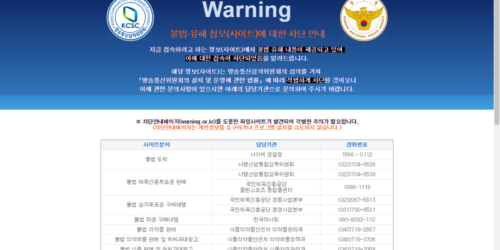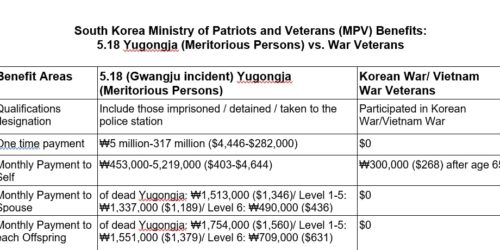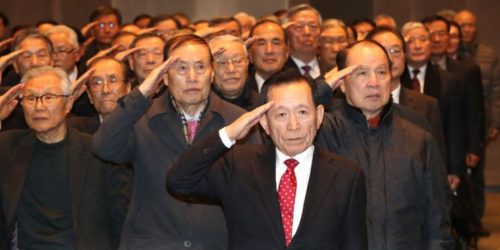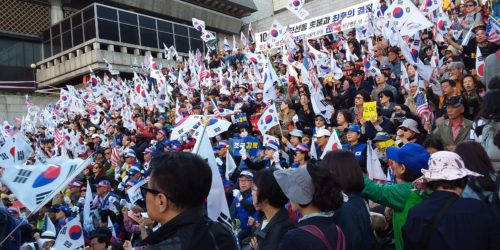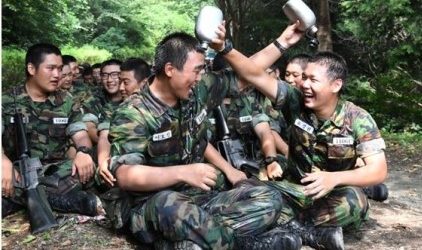The Moon Administration Surreptitiously Moves to Nationalize Private Kindergartens in South Korea
2019-3-7, Tara O
The Moon administration is using various tools under its disposal to harass and suppress the Korea Kindergarten Association (한국사립유치원총연합회 or 한유총/Hanyoochong for short) and private kindergarten owners on its way to nationalizing private kindergartens, which are currently private enterprises.
This move is troubling for two reasons.
First, this is yet another step toward socialism and away from capitalism in South Korea. It opens the door to greater direct government intervention in other sectors of South Korea’s economy, including private health clinics and other private enterprises. Under socialism, private ownership of the means of production–capital, land, know how, etc.–are not allowed; rather, these assets become owned by the government. Thus private enterprises, such as these kindergarten businesses and private property, are not allowed in socialist states. The details of this recent action by the Moon administration against private kindergartens must be examined critically.
Second, this attempt reflects the Moon administration’s efforts to control the education of children from kindergarten onward. Jeongyojo (the Korean Teachers & Educational Workers’ Union, 전교조) the pro-North Korea teachers’ union, already has a disproportionate influence on children’s education from first grade and up. Jeongyojo is a pro-North Korea, anti-U.S., anti-Japan, politicized organization that is involved in issues far beyond education. It has been active in deleting references in South Korean textbooks to the facts that North Korea invaded South Korea and U.S. and UN forces participated in defending South Korea. For more on Jeongyojo, see here. The majority of South Korean kindergartens are public, so the Moon administration already controls the education content taught at the kindergarten level as well, except at private kindergartens. His administration intends to change that situation.
This report will focus on the first issue mentioned above about changing the nature of South Korea’s economy from capitalism to socialism.
Forcing private kindergartens to incorporate
The government has been pushing to turn private kindergartens, the majority of which are sole proprietorships, into corporations. A corporation must have a board of directors. National Assemblyman Park Young-jin, (박영진) Deobureo Minju Party, introduced a bill, which includes Private School Law Reform. In it is a clause that states that a person on the school board of directors cannot also be the president of the school. (11:47) This clause is problematic because the bill also states board members cannot receive a salary. Essentially, the owners would have to give up some control (because there will be other board members) and not be able to withdraw salary, despite the fact that they provided all the capital and the owner’s own labor and know-how. According to Kim Jong-ho,
The Seoul City Education Superintendent Joe Hee-yeon (조희연) has pursued forced incorporation of any private schools with more than 200 students…If a private school incorporates, then the owner becomes a member of the board of directors…but the new proposed law prevents the owner, who is a board member, from also being the president running the school. [Unlike the company president,] the board members cannot receive a salary. Thus the owner, who established the school [with his/her own capital] cannot receive any salary from the school. [If the owner chooses to be the president, he or she cannot be on the board; then] the board of directors [depending on how the law is written and implemented,] might be filled with “Mothers Who Do Politics” (a group headed by a former National Assemblywoman who advocated the move to nationalize private kindergartens]. (11:47)
The measure essentially would lead to the government taking over control of private entities. It is not just the Seoul government that is pursuing the forced incorporation, but it is a nation-wide effort with the Moon administration’s backing.
Owners not allowed to close private kindergartens
Given such an unattractive prospect, numerous private kindergarten owners want to permanently close their businesses. (14:28) However, the owners apparently do not have the right to shut down businesses, even when they are unprofitable or the owners can no longer run them. The government states that the owners cannot shut down kindergartens, unless they have approval from two thirds of the parents whose children are enrolled in the kindergarten. (14:35) This is yet another clause in Park’s Private School Law Reform bill. This proposal has not been voted on yet, but the Moon administration is enforcing it anyway as an administrative measure, threatening the private kindergarten owners with police action, if not complied.
Kim Jeong-ho (김정호), who discusses economic and finance issues on YouTube, relayed a situation of a kindergarten president in Busan, who has cancer. He needs to close the kindergarten, but he is not allowed to, because he cannot get two thirds of the parents’ approval to do so. (14:58) In a situation in which the owner cannot shut down the private kindergarten and has no further capability to run it, then what can be done? The owners would be forced to continue to provide capital, even by taking out loans. Can it be sold? Who would buy the kindergarten, if the owner cannot draw salary from it, but is obligated to provide capital at its inception and afterwards? Kim envisions the owners would be forced to give up their board seat and abandon the kindergarten. Park’s bill does not mention remuneration. In fact, this measure appears to set the conditions for government confiscation of private kindergartens.
Edufine – public school accounting system
The Korea Kindergarten Association/Hanyoochong (한유총) represents 1,533 private kindergartens. There are over 3,900 private kindergartens in South Korea. 74.5% of kindergarteners attend private kindergartens. (1:30)
Hanyoochong and South Korea’s Education Ministry headed by Yoo Eun-hye (유은혜; also the Deputy Prime Minister for Society) have been locked in a conflict over the Education Ministry’s recent mandate for the private kindergartens to use “Edufine” (Education Finance e-system), a nation-wide school accounting software/system that is in use by public schools, which are public entities.
The private kindergartens are already audited because of a government subsidy paid to parents of children in kindergarten. However, the subsidy goes to the parents, not directly to the kindergartens. When the concept of “free education” surfaced in 2012, the government started to issue vouchers to parents. (21:03) The parents can choose whether they will use the voucher at public or private kindergartens. It costs the private kindergarten ₩530,000 won ($468) per child. (0:52) [For comparison, it costs public kindergarten ₩1,140,000 ($1,006) per child, much more than at private kindergartens. (27:02)] If the parents decide to send their child to a private kindergarten, then the government pays up to ₩290,000 ($256) for the voucher and the parents pay the rest. (0:56) It is the parents that the government is subsidizing; the private kindergartens are charging the market rate. Thus, it does not make sense that the government is now imposing Edufine, the public education accounting system, on private entities, which have different financial and operational characteristics than public schools. The most important distinction is that public kindergartens receive 100% of their funding from the government, while private kindergarten owners invest their own capital, either from their own savings or through financing.
The private kindergarten owners are concerned about the government’s new mandate for various reasons. One is the fear that this will allow the government to monitor their private assets as well as to interfere in their operational activities. For instance, if they buy spinach for kids’ lunch, they have to record the item description, the cost, the store where it was purchased, and other details in the Edufine system, which is subject to real time monitoring by the Education Ministry and the local education office. (4:40) The real time monitoring allows the government to interfere in operations at anytime. (5:13) In fact, there are claims that interference is the real reason for requiring the private kindergartens to use the Edufine system.
Another issue is that the government will not allow the private kindergarten owners to enter rent or the cost of the building as an expense in the system. (1:30) This means one of the largest expenses a private kindergarten incurs will not be recorded in the system for accounting purposes, giving a false picture of the kindergarten’s financial and operational situation. It may show that the kindergarten is profitable, when in fact, it could be operating at a loss. If the kindergarten operates at a loss, then it is the owner, not the state, that has to deal with the loss.
Furthermore, it imposes additional administrative burdens. The private kindergarten owners will need additional staff and resources devoted to operating the accounting system. The public kindergartens already have 2-3 employees dedicated to accounting. Even with dedicated accounting professionals, the government auditors often find discrepancies at public education institutions. (8:25) Thus, hiring staff does not guarantee that the work will be done to the government standard. However, the discrepancies found in private kindergartens are portrayed as “embezzlement.”
Media: The emergence of a negative perception of private kindergartens
The Education Ministry claims the Edufine system requirement is for transparency. There was a case where the owner of a private kindergarten bought a name brand handbag and other personal items, and this issue dominated the South Korean news, giving the impression that private kindergarten owners are embezzlers. It should be noted that the funds to run private kindergartens are provided by the parents of the students, not the government. Any revenue left over after covering business expenses belong to the owner, and if the education was unsatisfactory, the parents would likely disenroll and find a new school.
This negative perception, fueled by Deobureo Minju Party lawmakers and the mass media, is leading the public to demand that private kindergarten owners not spend their profit on anything other than kindergarten education. They say education is noble and the owners should not look at it as a profit making endeavor. They are also calling for turning all private kindergartens into public ones. The Moon administration also wants to add another 1,000 public kindergartens into the system. (2:01)
The perception that “all private kindergarten owners are embezzlers” did not exist prior to 2012, when the government was not involved with subsidies to parents for children’s kindergarten education. Since there was no government money involved, there was no government audit. The majority of the kindergartens ran as sole proprietorships, and after they paid their operating expenses, any money left over was for owners to handle as they saw fit. Kindergarten owners set their prices based on market conditions and parents chose where to send their children.
Moon administration threatens; Korea Kindergarten Association backs down
For the past ten years, the Korean Kindergarten Association has been asking for an accounting system and standards that are appropriate for private kindergartens, most of which are sole proprietorships, but the government has not provided guidelines.
Minister Yoo apparently made no efforts to engage with the Association. Whenever the Association asked for ways to improve, it was noted that Minister Yoo “does not listen to it with [an] open mind, but rather responds with a strict response, hard action, criminal prosecution, [coercion] and intimidation.”
Frustrated, the Korea Kindergarten Association decided to delay the opening of the new semester at kindergartens, which was scheduled for March 4, 2019. South Korea’s new academic year starts in early March. Minister Yoo, at a conference on the “Strengthening of the Publicness of Early Childhood Education (유아교육 공공성 강화 추진단) on March 1, accused the Association of holding parents and children hostage.
Prime Minister Lee Nak-yeon (이낙연) said “If the Korea Kindergarten Association postpones the opening of private kindergartens, then I will deal with them with a strong enforcement of statute” at a meeting held on March 2, 2019. The meeting was titled “Emergency Meeting of the Related National Government Agencies and Local Self-governing Bodies to Respond to the Korea Kindergarten Association Delaying Opening.”
The meeting was attended by Prime Minister Lee Nak-yeon, Education Minister Yoo Eun-hye, Justice Minister Park Sang-kee (박상기), Minister of Gender Equality and Family Jin Sun-mee (진선미), Senior Secretary for Social Affairs at the Blue House Kim Yeong-myung (김연명), National Police Chief Min Gap-ryong (민갑룡), Fair Trade Commission head Kim Sang-jo (김상조), Kyeonggi Province Education Office Superintendent Lee Jae-jung (이재정), and Education Superintendents from each province and provincial level city. The government showed clear intent to enlist the various tools of government to battle with the private kindergartens.
It is interesting that the Fair Trade Commission and the Police Chief attended the meeting, which means the Prime Minister and the Education Minister intend to enforce through potentially punitive measures with the help of these government agencies.
The Korea Kindergarten Association responded with a statement: “Yoon Eun-hye, Deputy Prime Minister for Society and Minister of Education, stop the witch hunt against private kindergartens and reveal the truth about government subsidies.”
Minister Yoo and the Seoul Superintendent threatened to report the Association and the kindergartens to the police for investigation. On March 4, the Seoul Metropolitan Office of Education decided to cancel the incorporation of the Korean Kindergarten Association, which was established in 1995. The decision takes away the Association’s legal status in representing private kindergartens. It also could mean the government could confiscate the assets of the association. With all these pressures, the Association backed down later that day.
Emergence of Kindergartens
Kindergartens flourished in 1980s
In 1980, then president Chun Doo-hwan noticed that while South Korea was ahead of North Korea in many sectors of society, one sector that fell behind was early childhood education/care. (18:26) South Korea did not have that many kindergartens then. In 1980, there were 901 total kindergartens in South Korea, 861 of which were privately-owned. To increase the number, Chun adopted liberalization in establishing kindergartens. In 1981, the number jumped to 2,958 (1,036 private) and it continued to increase dramatically throughout the 1980s. It has not increased much since then, so the majority of the increases occurred during the 1980s. Kindergartens flourished, with quality also increasing dramatically due to free market competition. (20:35)
Conclusion
The Moon administration, with the help of his party and the “local self-governing” bodies, are pursuing not only greater intervention in education, but control of private kindergartens. This measure helps expand the Jeongyojo’s pro-North Korea, anti-U.S. education to the kindergarten level. Further, their efforts point to nationalization of private kindergartens. If they are successful, then they can expand these actions to other sectors of the economy, moving South Korea further toward socialism.
